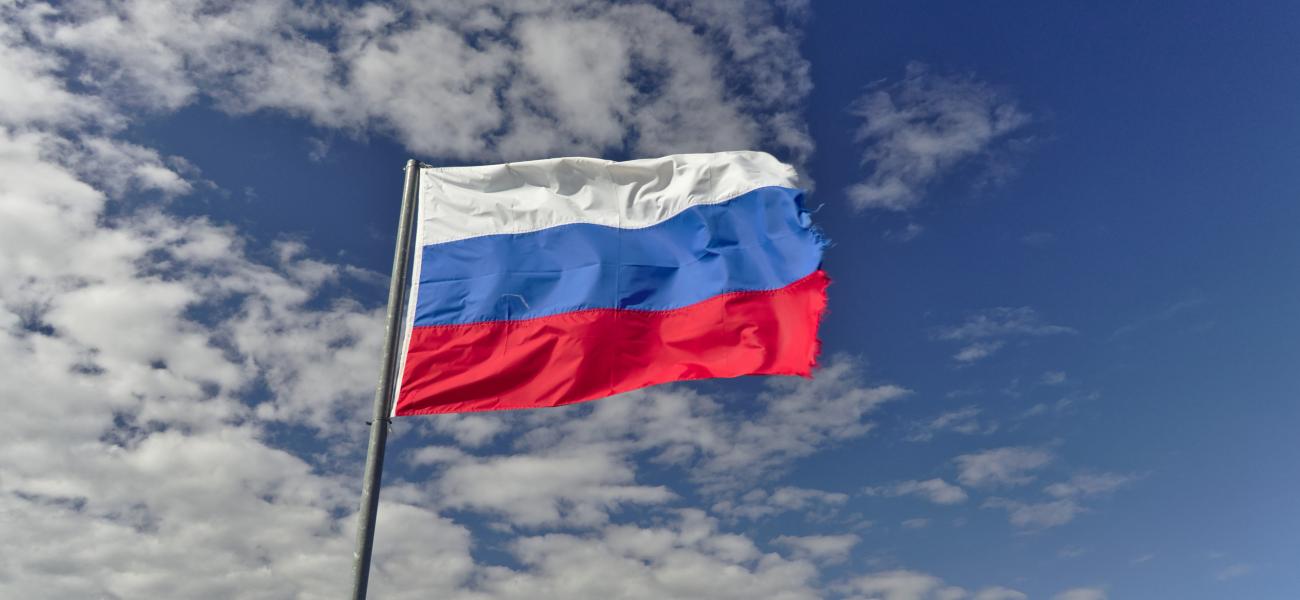
Survey: Does Russia Matter?
At the start of the Ukraine crisis in 2014, the refrain coming out of Washington referred to Russia as a loser that doesn’t matter anymore: economy collapsing, population shrinking, no industry or prospects to speak of. Since then, we have increasingly often heard Russia called resurgent, revanchist, a Weimar Republic redux, an existential threat to the United States. Amid the din, is it possible to determine whether Russia matters to the U.S. and its vital interests? We asked a dozen experts for their opinions.

Rawi Abdelal
Director, Davis Center for Russian and Eurasian Studies, Harvard UniversityRussia matters because it is good at strategy. Russia matters because it exerts significant influence on the evolution of Europe, the Caucasus, the Black Sea region, the Near East, Central Asia and northeast Asia.

Graham Allison
Director, Belfer Center for Science and International AffairsEngaging Russia is sometimes dangerous, almost always difficult, and often disappointing. But the alternative is even worse. Russia matters because it is one of the few countries whose actions directly impact America’s vital interests. We cannot remind ourselves too often how. Specifically: its superpower nuclear arsenal could erase the US from the map; its cooperation in countering nuclear proliferation and preventing nuclear terrorism is essential for success; it plays a key role in combating international terrorism; it is the world’s largest producer of oil and gas; it has a veto in the UN Security Council; it has the only rockets that can ferry American astronauts to and from the International Space Station; and its brain power, particularly in STEM fields, ensures that it regularly ranks at the top of the competition in chess and cyber games. While no one should underestimate Russia’s potential as a spoiler, too many fail to recognize its influence when it chooses to help. The agreement that prevented Iran from acquiring nuclear weapons could not have happened without active Russian assistance. Today U.S.-Russian relations are on a downward spiral toward Cold War II. The next American President will have to be ruthlessly realistic in analyzing the failures of the past eight years that have led to this point in considering options for a better, safer way forward.

Deana Arsenian
Vice President, International Program, and Program Director, Russia and Eurasia, Carnegie Corporation of New YorkIn today’s global environment every major power matters. Russia is one of the few that matters a lot. It is a factor in most of today’s international peace and security issues, including: nuclear threat and proliferation, global terrorism, Euro-Atlantic security, stability in Eurasia and Asia, conflicts in the Middle East, cybersecurity, energy security, regional alliances, climate change and the Arctic. In fact, it is difficult to identify a global security challenge that does not involve Russia, and the outcome of which does not depend, at least to a degree, on Russia’s actions. Acknowledging that Russia matters is the first step towards putting the U.S.-Russia relationship on a positive course and, by extension, creating an opportunity to deal with global challenges in ways that better reflect the realities of the day.

Stephen Blank
Senior Fellow for Russia, American Foreign Policy CouncilRussia matters for several reasons. These go beyond its nuclear and military capability and efforts to dominate Eurasia, though these alone would suffice. It is important as well because it serves as an alibi or protector, if not an example, for many violent, authoritarian, oppressive regimes, and also because all signs point to decline across the board. As a result, the likelihood of an upheaval across this land mass, if not an explosion, is increasing and its fallout (and the pun is intended) could be profound and global in its impact.

Ian Bremmer
President, Eurasia GroupCliff Kupchan
Chairman, Eurasia GroupThough the U.S. doesn’t have top-tier interests there, Russia does matter. On key international hotspots, currently in Syria and last year for the Iran nuclear deal, the road to U.S. goals passes through Moscow. That’s the case too for nuclear arms control. Russia is willing and able to push back against U.S. security interests—especially in its backyard and the Middle East. Moscow is also a cyber power, and will pointedly test the U.S. in that arena. Moscow derives strength in part from playing a poor hand exceptionally well—yet strength it is.
But Russia is not among the top threats to U.S. security, and is in clear decline. The U.S. is increasingly unable to control outcomes in the international sphere. That’s true in spades for Russia. U.S. business interests in Russia are minimal, primarily because of its poor investment climate but also due to sanctions. Finally, Russia’s global role and its importance to the U.S. will further atrophy as China continues to rise and fills the windshield of most nations. All in, Russia matters, but the United States’ focus will be increasingly elsewhere.

Samuel Charap
Senior Fellow for Russia and Eurasia, International Institute for Strategic StudiesOf course Russia matters. It has influence over any number of vital U.S. national interests, including security in key regions, particularly Europe and the Middle East, counterterrorism, non-proliferation, climate change, energy security, multilateral institutions—the list can go on and on. The key point is that Russia matters for U.S. interests regardless of whether its foreign policy is opposed to ours or its political system is to our liking. When our policies conflict, Russia sometimes matters even more. And our (justified) distaste for the regime does not detract from Russia’s importance.

Hans Kristensen
Director, Nuclear Information Project, Federation of American ScientistsRussia’s recent behavior in Ukraine, military posturing along its eastern and southern borders with NATO, explicit general military and nuclear threats and suspected cyber and information operations have triggered a fundamental change in how the U.S. views and interacts with Russia. One aspect of this—the role of nuclear weapons—is evolving in ways that threaten to revitalize the nuclear issue along lines we haven’t seen for 25 years. Russia’s nuclear modernization is now a prominent official justification for the U.S. modernization of its own nuclear forces. The perception of an increased Russian threat against NATO has already resulted in changes in the way the United States operates its nuclear forces. And concern about Russian willingness to use nuclear weapons first is triggering modifications of U.S. and NATO nuclear planning. We are not yet in a nuclear arms race (Russia and the U.S. continue to reduce excess nuclear forces), but the bilateral dynamic in the nuclear relationship is intensifying under the shadow of an official adversarial relationship. Civilian and military leaders on both sides must exercise restraint to avoid increasing nuclear risks further.

Andrew Kuchins
Senior Fellow, Center for Eurasian, Russian and East European Studies, Georgetown UniversityRussia matters a lot for the successful pursuit of U.S. foreign- and security-policy goals. Russia is Washington’s most essential partner in pursuing nuclear security and non-proliferation and perhaps the most dangerous, existential threat we face in terms of nuclear conflict. While President Obama in 2014 called Russia just a "regional power," the obvious counter is that Russia is a major power in virtually all the regions most important to U.S. foreign-policy and security goals: Europe, the Middle East, East Asia. And there are important connections to keep in mind. For example, the Obama Administration’s pivot to Asia has been compromised by urgent challenges with European security and the Middle East, and Russia obviously has been very active in both. Russia is and will remain of great consequence for U.S. foreign and security policy. To dismiss it as "weak" or "peripheral" is factually inaccurate and quite dangerous.

Robert Legvold
Marshall D. Shulman Professor Emeritus of Political Science, Columbia UniversityThe question is not whether Russia matters, but how and how much. It obviously matters—for good or ill—in the struggle against global terrorism, particularly the Islamic State, in limiting the spread of WMD and in dealing with instability in and around the former Soviet Union. But we miss the boat on the “how much” question by ignoring how central—again for good or ill—Russia is in four transcendent respects: first, in getting a handle on an increasingly complex and dangerous world of nine nuclear powers; second, in producing a European-Eurasian community cooperating and at peace, rather than again divided and facing off militarily; third, in ensuring that the rise of China and other new major powers is addressed constructively together, rather than as an arena of U.S.-Russian rivalry; fourth, in promoting stable change and mutual security in and around the Eurasian core. All four will be critical to what happens to international politics in the first half of the 21st century, and in none is any country more important to the United States than Russia.

Kimberly Marten
Ann Whitney Olin Professor of Political Science, Barnard College, Columbia UniversityRussia matters because it is a great civilization, whose people have made lasting contributions to science and technology, literature and the arts and, increasingly, to business, too. Russia matters because it is the only country that could destroy the United States with nuclear weapons and because it has demonstrated its capability and willingness to marshal cyber weapons against the U.S. and its allies. Russia could matter even more if it consistently used its permanent seat on the UN Security Council to further the global good—but at the moment it is choosing to matter primarily as a spoiler in international security.

Rajan Menon
Anne and Bernard Spitzer Chair in Political Science, City College of New YorkGiven Russia’s size, oil wealth, nuclear arsenal and UN Security Council membership, few major international questions can be addressed effectively without its involvement—including climate change, nuclear proliferation (witness Moscow's important role in the Iran deal), terrorism or regional hotspots like Afghanistan, Syria, Ukraine and Korea. Moreover, contrary to what we often hear, Russia is not isolated. It has productive relations with a host of countries, among them China, India, Brazil and Israel, with Turkey and Japan seeking improved ties. In Europe there are calls to end sanctions, though that may not happen soon. Russia and the West will continue to disagree on important issues, but the U.S. deals with many countries with which it has major differences or that are undemocratic, not least China, Saudi Arabia, Egypt and Uzbekistan. One does not have to applaud everything Russia does to recognize that engagement with it makes strategic sense.

Olga Oliker
Director, Russia and Eurasia Program, Center for Strategic and International StudiesRussia matters to the United States, but not in the way that the United States matters to Russia. For Washington, Russia is one nation among many whose actions and interests can help, hurt or complicate U.S. endeavors. Moscow, in contrast, defines much of its own foreign policy in opposition to Washington’s. In some cases, Moscow’s goals are truly different (e.g., in Syria and Ukraine). In others, challenging the United States is Russia’s goal (e.g., its fighter jets buzzing U.S. naval vessels). Russia wants, in part, to demonstrate that the age of unfettered U.S. action is over and that Russia is an important constraint on U.S. behavior. To date, Russia has stopped short of truly threatening core U.S. interests. However, Moscow’s continuing brinkmanship creates a growing impression in Washington that Russia is adversarial—though still not central. As a result, the risk of miscalculation and escalation grows with each altercation.

Steven Pifer
Senior Fellow, Brookings InstitutionRussia matters for U.S. interests. First, it remains the only country capable of physically destroying the United States. Second, its aggression against Ukraine and generally more belligerent attitude toward the West have affected Europe, whose security and prosperity are important to America. Third, when interests coincide, Russia and the U.S. can sometimes work together to resolve major international problems, such as the Iranian nuclear question. On some issues, however, the two pursue very different policy objectives. That can burden relations and hinder cooperation, even when interests intersect. Finally, while Russia matters for U.S. interests, it will matter less and less compared to China, now emerging as the new superpower. A stagnant economy will likely reduce Moscow’s capacity to be a global player. That may not always be a good thing from a U.S. perspective.

Matthew Rojansky
Director, Kennan Institute, Woodrow Wilson International Center for ScholarsAlthough remote, the prospect of a nuclear exchange between Russia and the United States is still all too real. Both countries maintain arsenals of thousands of weapons, some deployed on hair-trigger alert, any one of which, if detonated, would surely change (and possibly destroy) the world as we know it. That is reason enough to take Russia seriously—and to maintain a strong working dialogue on strategic stability and security regardless of other disagreements. Yet Russia matters for so many more vital U.S. interests, ranging from its unique ambitions and capabilities to combat 21st-century threats such as terrorism, piracy and pandemic disease, to its pivotal role in the institutions that shape our global political and economic order, as well as its indispensable role in managing regional conflicts in the Middle East, East Asia and the post-Soviet space.

Kevin Ryan
Director, Defense and Intelligence Projects, Belfer Center for Science and International Affairs, Harvard Kennedy SchoolDoes Russia matter? Some might answer this question by deductive reasoning: Start with the premise that Russia should matter and find examples where it does. That approach will undoubtedly deliver a positive answer—Russia matters. Another approach is inductive reasoning: Examine the policies and practices of the U.S. toward Russia as they exist and generalize to the answer. In this case, Russia seems to matter only insofar as it can complicate and disrupt American goals. It’s true that there are exceptions, e.g. near-space exploration. But, in general, inductive reasoning delivers a negative answer: Russia does not matter. In Washington, inductive reasoning seems predominant.

Brian Taylor
Professor of Political Science, Maxwell School of Citizenship and Public Affairs, Syracuse UniversityRussia matters. It matters because of its geographic size and location, its UN Security Council permanent membership, its nuclear arsenal and materials, its oil and gas reserves, and its great power ambitions that make it an important player in Eurasia and beyond. Many of the most important international issues—climate change, nuclear disarmament, terrorism, the wars in Ukraine and Syria—cannot be resolved without engagement with Russia. At the same time, Russia represents less than 2 percent of global population and the global economy, so it should be noted that its capacity to continue to play such a prominent role in international affairs will increasingly be tested, given this mismatch between ambition and some core attributes of international power and status.
This survey was completed in September 2016.
The opinions expressed in this commentary are solely those of the authors.
